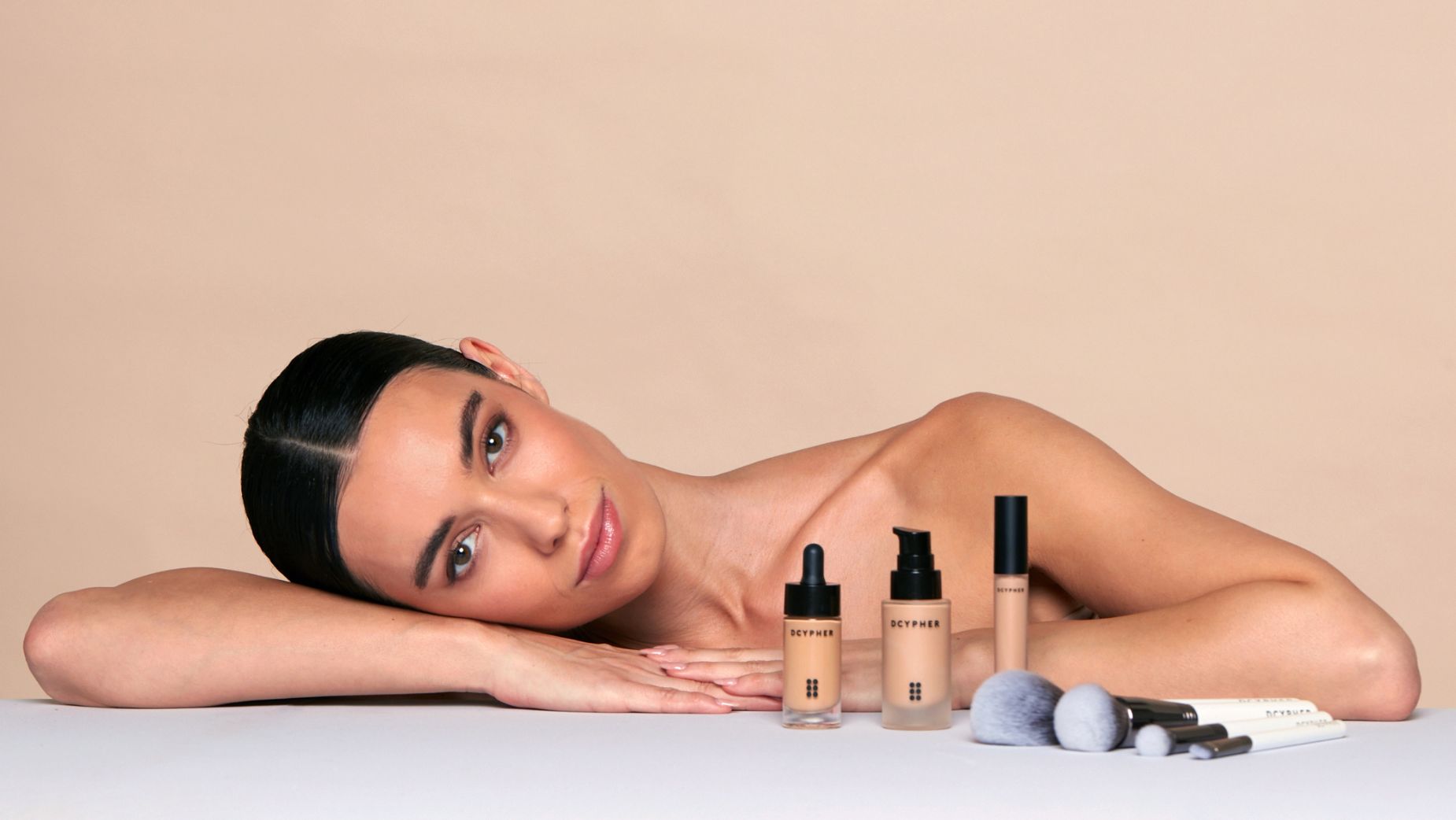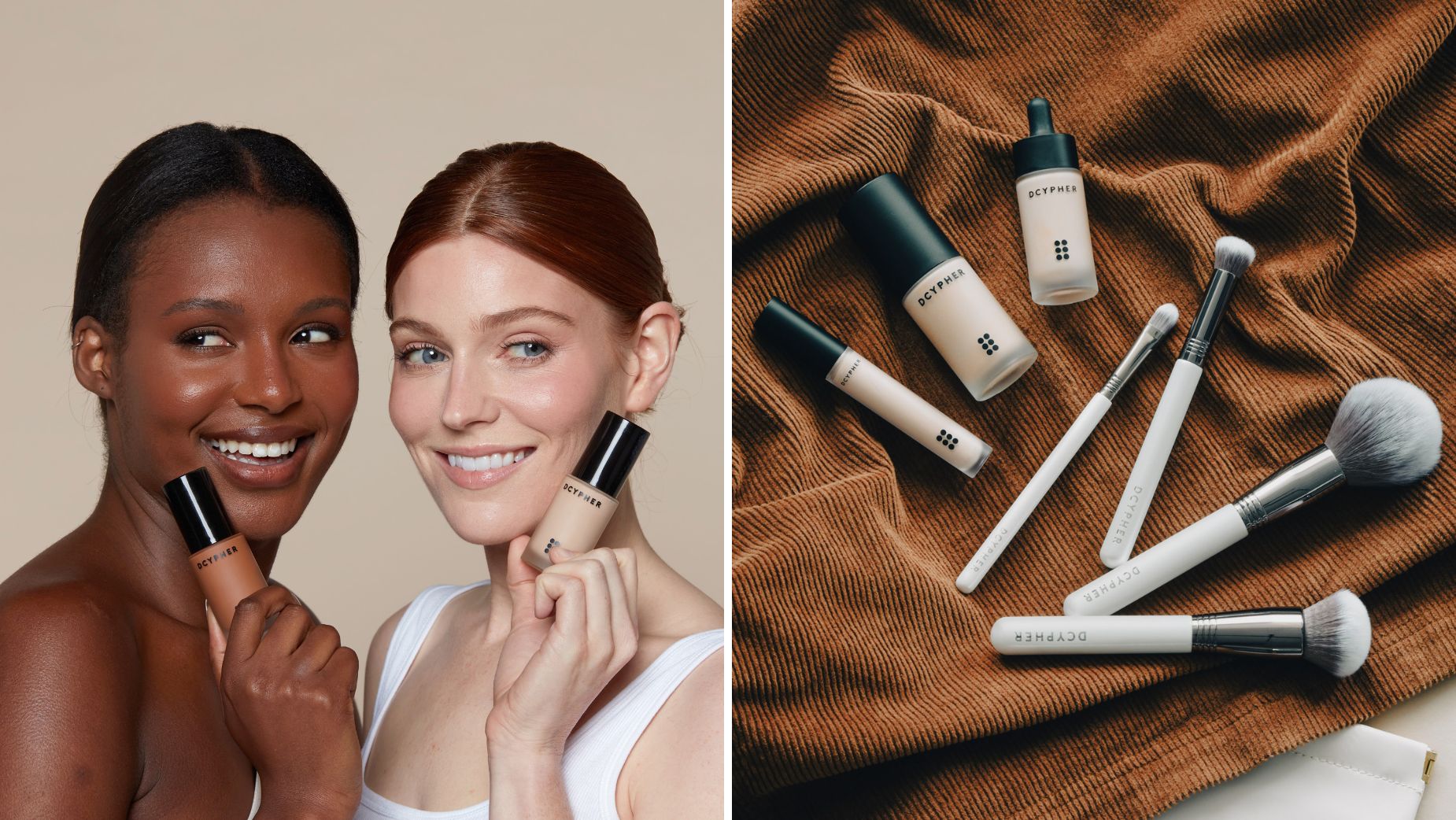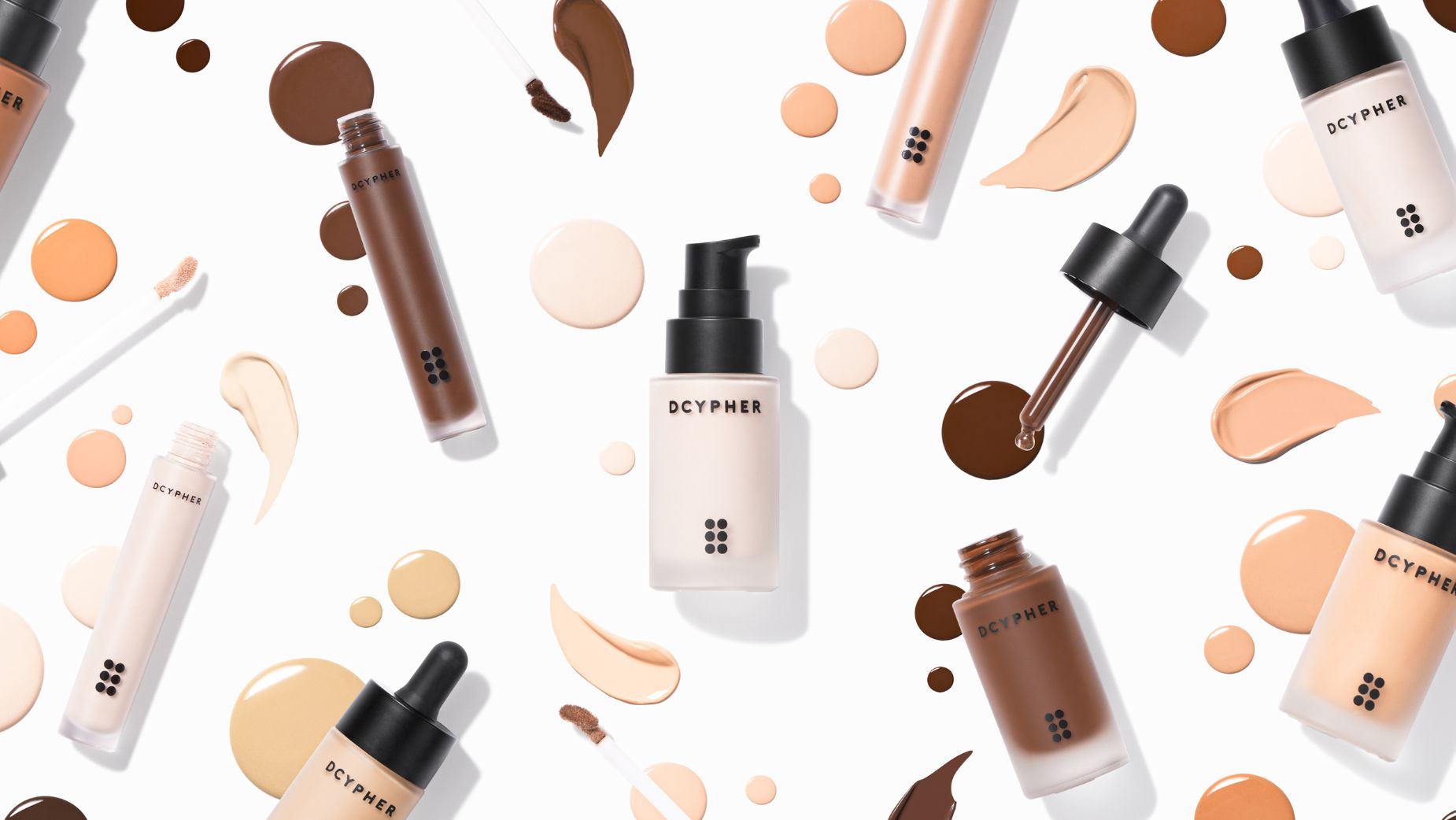
At DCYPHER, AI Is Solving an Age-Old Cosmetic Conundrum

One of the hottest TikTok trends right now (and making its way offline too) is ‘getting your colours done’ - it involves using a filter that surrounds the user’s face with a colour wheel to help determine which colours suit them best. The idea itself is far from new, however, having originated in the ‘80s and known then as ‘colour analysis’.
TikTok’s filter - while undeniably fun and easy to use - isn’t very precise which is why many are turning to colour analysis experts in their search to discover whether they’re a summer, spring, autumn, winter, or one of the more complex subcategories. The retro exercise feels fresh today by tapping into consumers’ desire to consume less and to consume better. Knowing one’s colours should, in theory, reduce mindless shopping and take the guesswork out of what looks good.

Knowing one’s colours is even more important when it comes to make-up and yet the manual process of trying to shade-match products like foundation or concealer, alone or with a makeup artist, remains difficult. In-store lighting, trying to guess your shade online, choosing a new brand, and the availability of the shades needed are all variables that people shopping for complexion make-up have to contend with all the time.
Where's the beauty industry’s answer to ‘colour analysis’? Many brands have attempted something like this, very imperfectly. Mostly it’s a case of uploading a picture and getting the closest match to an existing shade in the range. It’s an experience that appears personalised on the surface but is really an exercise in good luck as skin tones (and undertones) are far more diverse than the typical 20 to 40 options in a brand’s range.
This was the challenge that Claire Triantis set out to solve with the mixed-to-measure cosmetics brand DCYPHER. With a degree in psychology and experience working in consumer science at Uniliver’s R&D department, Claire had a “really good insight into the complexity of individual needs across beauty and personal care, and the opportunity for true personalisation” prior to co-founding the brand with the biochemist Adam Triantis.
DCYPHER launched to market with a foundation - arguably the most difficult product to get right and one that’s the most difficult to shop for. “Shade ranges are often limited and restricted to conventional shades leaving those with pale, dark and olive skin tones uncatered for,” Claire says, diagnosing the problem. “It's the category where consumers have the most difficulty in product selection, it is a trial and error process that often leads to a drawer of failed attempts which is frustrating and expensive.”

Technology and beauty are only now starting to intermingle meaningfully, perhaps because for so long ‘beauty’ came first, and the tech part was added later. Not at DCYPHER. “To use technology effectively it is essential to rebuild your model around technology, rather than it being an add on,” says Claire. “DCYPHER was built from the tech up, so unlike other established brands that need to bolt on technology to their existing off-the-shelf models, we have built our concept around tech to ensure it delivers.”
Powering the brand’s ability to personalise is AI, which Claire calls “a core part” of the concept. “Without it, we wouldn’t be able to properly personalise our products.”
How does the process work? “Consumers firstly visit our website and are able to personalise their product coverage and finish. They then use their camera as part of the measurement process. The scanner is highly specialised as it can account for lighting conditions and remove unwanted pigmentation from the overall measurement to give us your six character skin tone ID. Our intelligent formulator is then able to take all of this information and turn it into a recipe to make your perfect shade and formula. The information is sent to our bespoke machines which dispense the precise amounts of each ingredient. The AI enables us to make any colour, in any coverage and finish, therefore making the number of possible formula combinations enormous,” she explains. The made-to-measure product arrives with a card noting the customer’s unique shade ID which is also stored online for future reference.
DCYPHER is so confident that the shade match will be near-perfect that all adjustments are offered free of charge.
While solving the primary challenge of accurate colour matching, the brand is simultaneously addressing another one: sustainability. A lot of focus is on whether packaging is recyclable and nearly none on what happens to unsold stock at the end of the product’s life. A traditional foundation’s lifecycle necessarily involves a lot of waste “in manufacturing, in store, and in consumers’ hands,” notes Claire.
“The traditional model is to stock a full set range of shades but many go unsold and are destroyed before they are even bought. Furthermore, as product selection is so difficult and shade ranges are so limited, consumers often need to return them or they sit on their make-up table unused,” she explains. At DCYPHER, due to the personalisation-first process, there is never surplus stock to manage since the raw materials are only mixed at the point of demand. Claire adds that the company’s “manufacturing processes are designed to use little power and be highly effective, meaning that we can make a lot of products in a small space and no retail footprint is required.”

Complexion products (foundation, concealer) are just the start for DCYPHER and Claire shares that different formulations and types of products will be coming soon. “We have lots of exciting new products in the pipeline, including skin-cosmetic hybrids and skin tone-recommended colour cosmetics outside of base products.”
The technology is there and ready to be deployed in intelligent and useful ways, namely to take the guesswork out of selecting cosmetics that really suit. Claire says the company is “working to develop these [products] with our customers” which neatly reveals that answering customers’ needs is the real driver for the brand.
The beauty industry has been toying with the idea of personalisation - and certainly marketing the concept, hard - for many years now, yet it hasn’t really materialised in a meaningful way. The colours are pre-existing, the stock is sitting in a warehouse, and consumers have to work with what they’re given, not the other way around. “We don’t believe the potential of true personalisation has been realised by the industry,” Claire says.
With AI-powered technology and a needs-first approach, DCYPHER is changing that by getting to the very core of what personalisation in beauty can mean. The aim is to help anyone looking find “the perfect product”, reflected in the practice of free-of-charge adjustments. Refreshingly, it’s also about catering to those who have been left out of the beauty conversation. Claire and DCYPHER welcome “anyone who feels they have an unmatchable skin tone to give us a try!”













